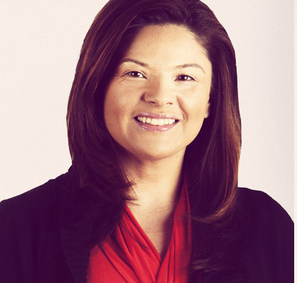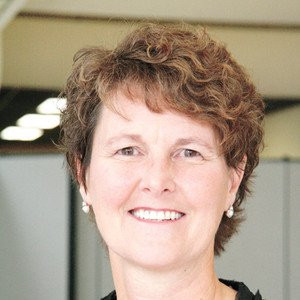Steiny: Expeditionary Learning: Journeying Through Compelling Content
Wednesday, February 19, 2014
Open since 2010, Greene Charter School in West Greenwich, RI, is one of a network of a large and growing network of "Expeditionary Learning" (EL) schools.
"Expeditionary learning" sounds deliciously exotic, like maybe what Marco Polo was doing or Dr. Livingston on a scientific exploration of the African jungle—fact-gathering treks through terrain that require shots and exotic transportation.
Heaven knows some students have a daily expedition riding Greene's bio-diesel buses from as far away as Westerly to the south, or super-urban Central Falls north of Providence. They arrive at the Greene campus out in Rhode Island's boonies after as much as an hour-and-a-half each way, but boast an attendance rate above state average. A donor gave the school the buses to support the Board's insistence on creating a diverse school available to urban students. (The current 9th grade class has 41 percent students eligible for subsidized lunch, up from the 12th grade's 9 percent. Word has gotten out.)
GET THE LATEST BREAKING NEWS HERE -- SIGN UP FOR GOLOCAL FREE DAILY EBLASTBut Greene's expeditions are actually classroom voyages through topic areas, although working out in the field, outside, or off-campus is integral to the EL experience. These academic explorations are semester-long, in-depth examinations of an issue that integrate at least two core academic subjects. Greene has an environmental science focus, so one of those two is usually science. (Most EL schools are either science or arts-focused.)
For example, the 9th graders begin their high-school careers studying food in all its complexity. Greene's Vice Principal, Melissa Hall, says that the students start by reading the Omnivores Dilemma. "They write food journals (recording precisely what they eat); they study mass-produced food products versus local. What does organic really mean? They look at food over the course of time and food seasonality." Together, kids and teachers draw a 100-mile radius from the school site itself to figure out what's within that reach. What does it cost to bring local produce to table versus the price of transporting strawberries from Mexico? And what are the trade-offs of energy-intensive indoor farming in wintery New England, where nothing grows outdoors in the winter?
Fun questions.
The EL philosophy
Greene's EL consultants work with the faculty to backwards-design such projects, so while kids pursue their hot topic, they're also learning the straight-up academic requirements, specifically of the Common Core. With students lured into questioning the food they generally take for granted, teachers make sure they test well, at least comfortably above state average.
A central idea of this approach is students "owning" their own learning. Every classroom has a copy of the 10 EL Design Principles. Number one, "The Primacy of Self-discovery," explains, "People discover their abilities, values, passions and responsibilities in situations that offer adventure and the unexpected." If kids aren't invested in their own learning, it's an uphill battle for the teachers. Head of School, Deanna Duncan, puts it this way: "Good teaching happens when the teachers themselves are engaged in learning." Turning the pages of a textbook is a tedious way to teach and learn.
Demona, an 11th grader from Providence, describes "expeditionary" this way: "They take a large topic and put it in English, science, history and get it to all come together. (The food project) makes you really aware of what you're putting into your body. I've changed my diet." She adds, "It's a really rigorous course. I did not feel prepared for the level of rigor here."
Putting their education to use
So these expeditions are the ultimate in hands-on learning. The originators of the approach wanted to infuse public education with the best practices of Outward Bound. While expensive, OB has had great success with getting disengaged kids out into the wilderness, where skills and courage they didn't even know they had rise to the surface. Prospective Greene students too must be willing to go camping, which has been a deal-breaker for some.
The academic expeditions always result in some sort of product that demonstrates—or not—that students actually understand the topic at hand. The food project culminates in an 8-course dinner that the 9th-graders prepare, only with local food (to the extent possible). Kids work with local suppliers, farmers, and chefs, bringing the real world to their learning. Preparing the dinner has become one of the weeklong courses called "intensives," learning experiences that happen in both the spring and fall. Intensives give the school a change to support the strong achievers' pursuit of a big project or personal passion, or to give struggling students the academic help they need to keep up in academically-rigorous classes. The dinner intensive is a plum project that motivates students to get their academic act together.
A growing trend
EL is growing quickly, with 32 schools in New England and many more elsewhere. Two-thirds of the EL schools are regular district schools; the rest are charters.
The Greene Board is thrilled with how EL is working out for their students. The reasons include EL's approach to school culture and climate, which I'll discuss next week.
Julia Steiny is a freelance columnist whose work also regularly appears at EducationNews.org . She is the founding director of the Youth Restoration Project, a restorative-practices initiative, currently building demonstration projects in Rhode Island. She consults for schools and government initiatives, including regular work for The Providence Plan for whom she analyzes data. For more detail, see juliasteiny.com or contact her at [email protected] or c/o GoLocalProv, 44 Weybosset Street, Providence, RI 02903.
Related Slideshow: RI Experts on the Biggest Issues Facing Public Education
On Friday November 22, the Hassenfeld Institute for Public Leadership at Bryant University, the Latino Policy Institute of Roger Williams University, the Rhode Island Association of School Committees, the Providence Student Union, and RI-CAN: Rhode Island Campaign for Achievement Now will host Rhode Island leaders in the public and nonprofit sectors for a symposium on "the civil rights issue of the 21st century, adequacy and equity and the State of Education in Rhode Island."
Weighing in on the the "three biggest factors" facing education in the state today are symposium participatnts Gary Sasse, Founding Director of the Hassenfeld Institute for Leadership; Christine Lopes Metcalfe, Executive Director of RI-CAN; Anna Cano-Morales, Chairwoman of the Board of Trustees, Central Falls Public Schools and Director, Latino Policy Institute at Roger Williams University; Tim Duffy, Executive Director, RI Association of School Committees; and Deborah Cylke, Superintendent of Pawtucket Public Schools.
Related Articles
- Julia Steiny: A Smart Way To Engage Math-Haters
- Julia Steiny: High-Stakes Testing Works If Kids Go To School
- Julia Steiny: Recruiting Family Before Foster Care
- Julia Steiny: Bring Back The ‘C’ Grade
- Julia Steiny: If Only Congress Could Get A Divorce
- Julia Steiny: Stranded in the Land of Over-Stimulated Kids
- Julia Steiny: Common Core Standards Freak Out Chicken Littles
- Julia Steiny: If the CCSS Are Not Our Common Vision, What Is?
- Julia Steiny: Teach Real Algebra Instead of Wasting Time with Apps
- Julia Steiny: Computer Science is Critical Thinking on Steroids
- Julia Steiny: In US Schools, Incorrect Answers Are ‘Un-American’
- Julia Steiny: The Education Non-System Sets Kids Up for Failure
- Julia Steiny: Determined Parents Start a School for Atypical Kids
- Julia Steiny: It Takes Guts to Depict a Happy, Healthy Childhood
- Julia Steiny: The Season’s Message- Love Heals
- Julia Steiny: Digital Badges Bust Out of School-Defined Learning
- Julia Steiny: It’s Building Kids’ Vocabulary, Stupid.
- Julia Steiny: Toys “R” Us Uses Kids to Pimp Their Products
- Julia Steiny: Economy To Youth: Make Your Own Jobs
- Julia Steiny: Middle-school Puberty–The Elephant in the Classroom
- Julia Steiny: We Are Raising A Generation Of Slackers
- Julia Steiny: 2014 – When All Students Were Supposed To Be Equal
- Julia Steiny: Giving Thanks for What’s Left of Childhood Magic
- Julia Steiny: Public Admits Being ‘Clueless’ About Education
- Julia Steiny: What Is International Restorative Justice Week?














